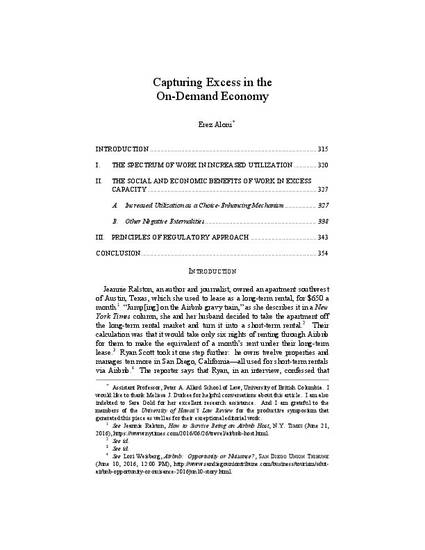
- Sharing Economy,
- Uber,
- Airbnb,
- Lyft,
- Gig Economy,
- Platform Economy,
- Local Regulation,
- Excess Capacity
- Law and
- Law and Economics
Activities facilitated by on-demand platforms (such as Airbnb or Uber) produce varying levels of negative and positive externalities. In this Article I submit that the type and quantity of externalities produced are determined by the location of the activity along a spectrum of increased utilization. Transactions that make use of excess capacity produce the fewest negative externalities and produce more positive externalities. The more we move along the spectrum away from use of excess capacity and toward new capacity created for the platform use, the more negative externalities the activity produces. Thus, unique sets of rules should govern the categories that lie at each end of this spectrum: Excess capacity should be regulated differently than new capacity, with each set of regulations tailored to address the particular benefits and harms that stem from that kind of activity.
